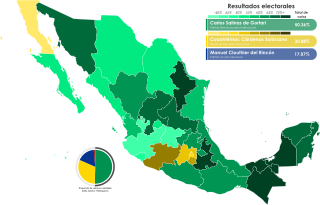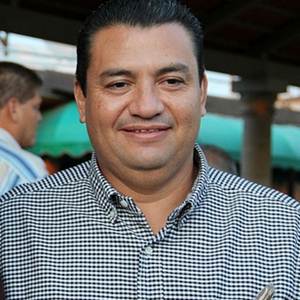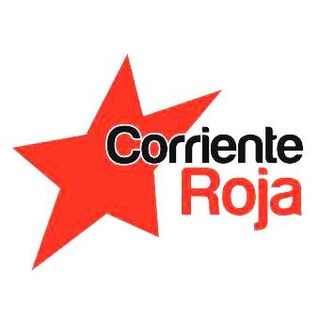
The Communist Party of Spain is a communist party that, since 1986, has been part of the United Left coalition, which is currently part of Sumar. Two of its politicians are Spanish government ministers: Yolanda Díaz and Sira Rego.

The National Assembly of the Socialist Left was an alliance of left-wing and far-left groups in Mexico. The only assembly of the socialist left for the creation of a "Socialist Front" was held in Mexico City April 16–17, 2005.

María del Rosario Ibarra de la Garza, also known by her marital name Rosario Ibarra de Piedra, was an activist and prominent figure in the politics of Mexico. She was a presidential candidate and was the serving president of Comité Eureka at the time of her death.

The Workers' Revolutionary Party is a Trotskyist political party in Mexico. It was originally founded in 1976 by the merger of two Trotskyist groups: the International Communist League, associated with the United Secretariat of the Fourth International and the Mexican Morenists.

The Liga Comunista 23 de Septiembre, or LC23S, was a Marxist-Leninist urban guerrilla movement that emerged in Mexico in the early 1970s. The result of the merging of various armed revolutionary organizations active in Mexico prior to 1974, with the objective of creating a united front to combat the Mexican government; the name was chosen to commemorate an unsuccessful guerrilla assault on the barracks of Ciudad Madera in the northern state of Chihuahua led by former schoolteacher Arturo Gámiz and the People's Guerrilla Group on September 23, 1965. The LC23S' militancy was made up mainly of young disenfranchised university students who saw any opportunity of a peaceful political transformation die in the aftermath of the 1968 student movement and then to be buried in the violent crackdown of 1971. Its long term objective was the “elimination of the capitalist system and bourgeois democracy, which would be replaced by a socialist republic and the dictatorship of the proletariat”.

General elections were held in Mexico on 6 July 1988. They were the first competitive presidential elections in Mexico since the Institutional Revolutionary Party (PRI) took power in 1929. The elections were widely considered to have been fraudulent, with the PRI resorting to electoral tampering to remain in power.

The Communist Party of Mexico is a communist party in Mexico. which preserves the line of its communist identity features: internationalism of the proletariat, Leninist organizational theory based on democratic centralism, and Marxism-Leninism.

Guillermo Padrés Elías is a Mexican politician and a member of the National Action Party (PAN). He served as Governor of Sonora from 2009 to 2015.

The 1982 Andalusian regional election was held on Sunday, 23 May 1982, to elect the 1st Parliament of the autonomous community of Andalusia. All 109 seats in the Parliament were up for election.
Javier Gándara Magaña is a Mexican businessman and politician. He is a member of the National Action Party (PAN). He served as the municipal president of Hermosillo from 2009 to 2012 and was the PAN nominee in the 2015 Sonora gubernatorial election, where he was defeated by Claudia Pavlovich.

Eduardo Enrique Castro Luque was the deputy-elect of Ciudad Obregón, Sonora, Mexico and a member of the Institutional Revolutionary Party (PRI).

Fausto Isidro Meza Flores alias "El Chapo Isidro", is a Mexican drug lord and leader of Los Mazatlecos. He has a high-ranking in the Beltrán Leyva Cartel and was the right-hand man of Alfredo Beltrán Leyva before he got incarcerated in United States.

Corriente Roja is a Spanish Trotskyist political organization, adhering to the International Workers League – Fourth International in 2012. CR defends and supports social struggles, class independence and political gains of the working class in order to establish a republic of workers. CR proposes the construction of a socialist economy, based on workers' democracy and the traditions of the alternative labor movement. According to its mission statement, current Red describes itself as follows:
Corriente Roja will put in place a strategy defined by its anticapitalist Marxist character, radically democratic, internationalist, ecologist and feminist

Marina del Pilar Avila Olmeda is a Mexican lawyer, politician, and member of the National Regeneration Movement (MORENA) political party, currently serving as Governor of Baja California, she is the first woman as governor. She was formerly a Federal Representative for Baja California's 2nd electoral district in the LXIV Legislature in the Chamber of Deputies of the General Congress of the United Mexican States, which she fulfilled from 2018 to 2019, also the first woman as Mayor of Mexicali, from 2019 to 2021.

Armando López Nogales is a Mexican former lawyer and politician who was the Governor of Sonora from 1997 to 2003 as a member of the Institutional Revolutionary Party (PRI). He also served as a Senator in the LVI Legislature of the Mexican Congress representing Sonora, as well as a federal deputy in the LIV Legislature, representing Sonora's first district.
Juan Bautista Valencia Durazo is a Mexican rancher and politician representing the National Action Party (PAN). He served in the LVII Legislature of the Congress of Sonora from 2003 to 2006.
Antonio Leyva Duarte is a Mexican politician representing the Institutional Revolutionary Party (PRI). He served in the LVI Legislature of the Congress of Sonora from 2000 to 2003.
Samuel Ocaña García is a Mexican politician and doctor who served as the Governor of Sonora from 1979 to 1985 as a member of the Institutional Revolutionary Party (PRI). He was known for his contributions towards the advancement of Sonoran culture and education during his term.
Enrique Carrera Vega was a Mexican politician and trade unionist. He served in the L Legislature of the Congress of Sonora from 1982 to 1985 as a member of the now-defunct Unified Socialist Party of Mexico (PSUM).
Lina Acosta Cid is a Mexican politician affiliated with the National Action Party. She served in the LVIII and LXI Lesiglatures of the Congress of Sonora.













